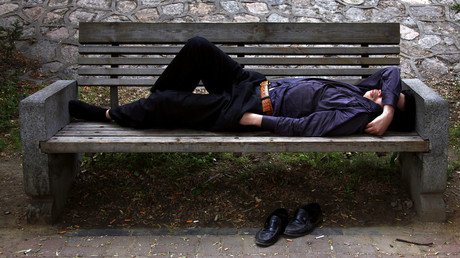Longer working hours bad for women & good for men, study says

Working more than 40 hours a week could mean serious health problems for women, like higher chances of cancer or heart diseases, a new study claims. The effect on men’s health appears to be quite the opposite, though.
Scientists from the Ohio State University analyzed interviews by a little less than 7,500 people given to the National Longitudinal Survey of Youth over 32 years (in between 1978 and 2009) to come to their conclusions.
They were in particular looking into their answers on average weekly working hours as well as diseases, particularly these eight: heart condition, non-skin cancer, arthritis, diabetes, chronic lung disease, asthma, chronic depression, and hypertension.
The results of the analysis were published in the Journal of Occupational and Environmental Medicine.
The negative effects can go unnoticed first, however, if a woman spends more than 40 hours per week at work, she already starts putting her health at risk, the scientists say. It significantly increases with more than 50-hour workweek. When the number of hours spent at work averages 60 hours or more, the risk of diabetes, cancer, heart diseases and arthritis grows threefold.
“People don’t think that much about how their early work experiences affect them down the road,” Allard Dembe, professor of health services management and policy and lead author of the study, said as cited by ScienceDaily.
“Women in their 20s, 30s and 40s are setting themselves up for problems later in life,” he added.
Interestingly enough, men also working longer hours (41 to 50 hours weekly) were found more prone to only one disease – arthritis. Their predisposition to other types of health problems appeared to be significantly less than in their not so laborious peers.
Such a big difference between the genders may be explained by the fact that women’s responsibilities more often go beyond their professional activities. Apart from pursuing career goals, they also do the housekeeping which only adds up to stress, the study says. Work for women can be less satisfying because of the constant need to balance between family and career.
“Women – especially women who have to juggle multiple roles – feel the effects of intensive work experiences and that can set the table for a variety of illnesses and disability,” Dembe said.
However, the study doesn’t not distinguish between workaholics, enjoying overwork, and those who are forced to bear more burden.
In 2015 a study, conducted by the Harvard and Stanford Business School, found that job stress leads to hypertension, cardiovascular disease, decreased mental health and even contributes to the deaths of 120,000 Americans a year.














